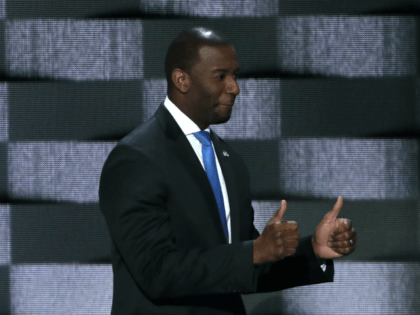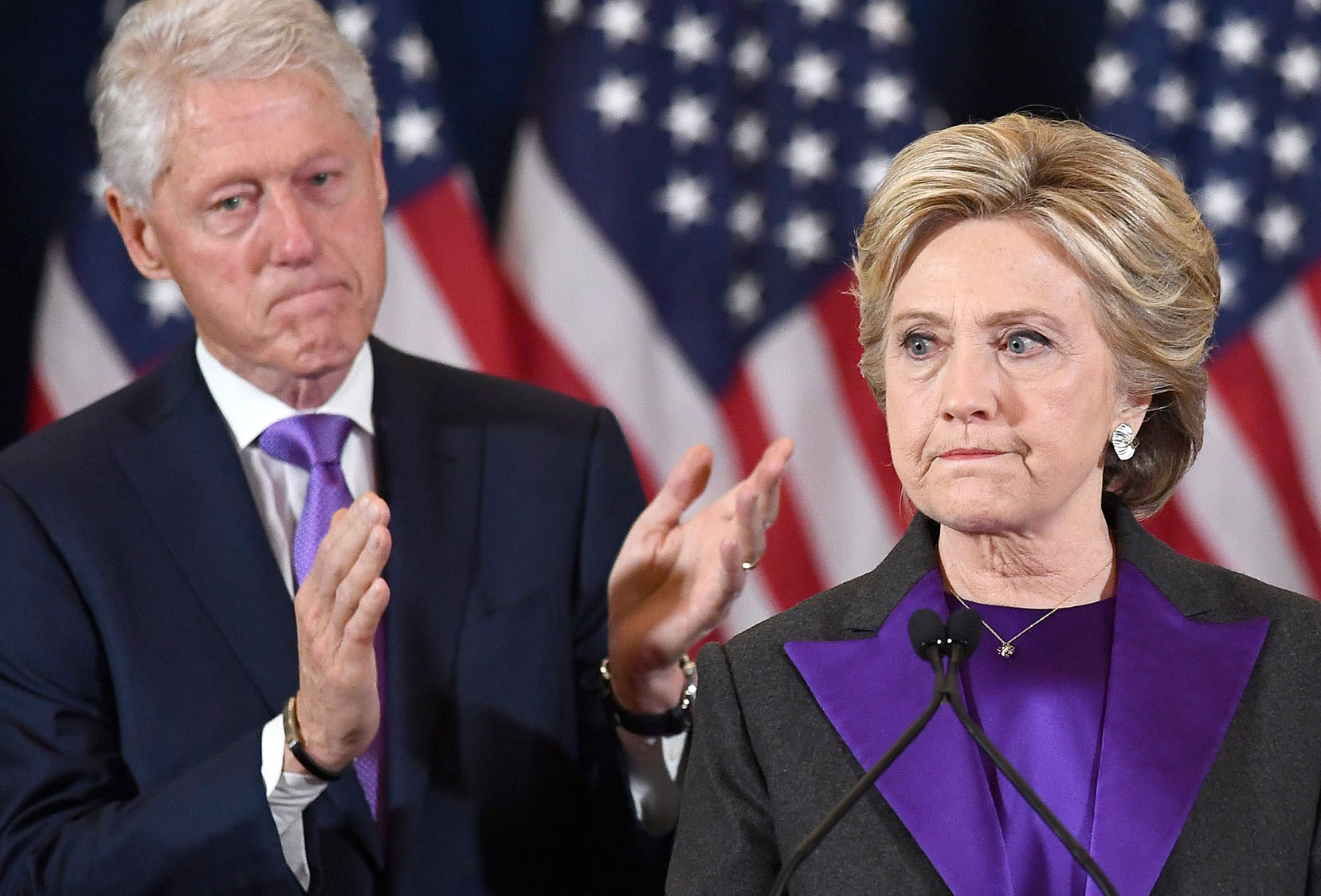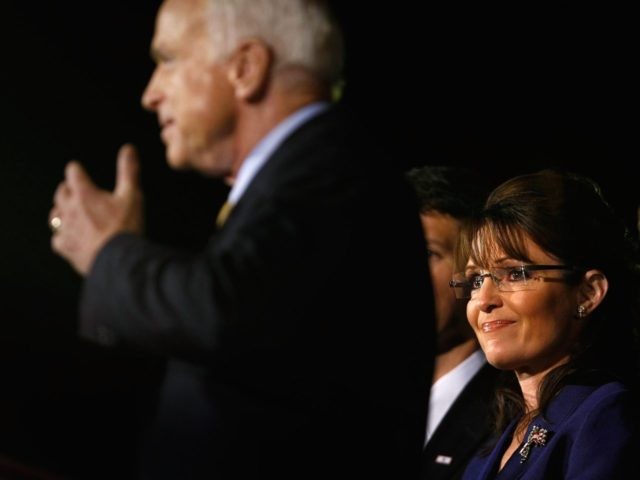True colors,
Sarah Palin, Loyal Running Mate, Excluded from John McCain’s Funeral
126EmailGoogle+Twitter
Chip Somodevilla / Getty
29 Aug 2018
12
Former Alaska governor Sarah Palin, who was Sen. John McCain (R-AZ)’s running mate in the 2008 presidential election, has been excluded from his funeral.
Breitbart News has independently confirmed an earlier report in
People magazine, which reported that Palin was not sent an invitation, and was told through intermediaries to stay away from the ceremony.
McCain fundraiser Carla Eudy confirmed to
People that Palin had not been invited — possibly,
People speculated, at the best of the McCain family.
The news comes on the tenth anniversary of the date in 2008 when Palin was
announced as McCain’s pick for Vice President.
Palin now joins President Donald Trump on the list of those barred from the funeral.
But unlike Trump, Palin never feuded with McCain and never criticized him.
When news broke on Saturday of McCain’s passing, Palin
said: “Today we lost an American original. Sen. John McCain was a maverick and a fighter, never afraid to stand for his beliefs. John never took the easy path in life — and through sacrifice and suffering he inspired others to serve something greater than self.
“John McCain was my friend. I will remember the good times. My family and I send prayers for Cindy and the McCain family.”
Last year, when McCain was reported to have
said that he regretted choosing Palin instead of Sen. Joe Lieberman (I-VT), Palin described the news as a “gut punch” but refused to blame McCain personally,
telling the UK
Daily Mail that she blamed his “ghostwriters” for such reports.
When McCain selected Palin as his running mate, the two had both built reputations as corruption-busting “maverick” leaders who were not afraid to buck their own parties.
After the 2008 election, they moved in separate political directions.
Palin became an inspirational figure for the Tea Party and for grassroots conservatives in general. McCain campaigned as a conservative border hawk in his 2010 re-election race, but became a harsh critic of the Tea Party, calling Sens. Ted Cruz (R-TX) and Rand Paul (R-KY) “wacko birds.”
Many in the Beltway blamed Palin for McCain’s loss in 2008 — even though Barack Obama had benefited from a sudden financial crisis and a biased press corps. That view seemed to have seeped into McCain’s own thinking.
Still, Palin never took offense, and always honored McCain. Even after being excluded from the funeral, she declined to criticize him.
People quoted a source close to the Palin family: “[O]ut of respect for Sen. McCain and his family we have nothing to add at this point. The Palin family will always cherish their friendship with the McCains and hold those memories dear.”
McCain will be laid to rest on Sunday in Annapolis, following several days of memorial events and ceremonies







